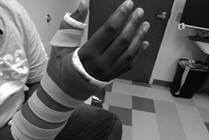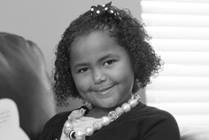Search Results
Viewing: 301-310 of 336 | All
Article
Lead Poisoning: Chelation Therapy
Some children with severe lead poisoning may need a medicine to help remove lead from their blood. Using medicine to take lead out of the blood is called chelation.
Article
Speech Services for Hearing Loss
We offers many speech services to meet the individual needs of your child and family. Services are based on your choices.

Blog
Broken Fingers: Why They Need Special Treatment and Care
Find out why a finger fracture is unique, tips for adjusting and why your child always needs care for a swollen, injured finger.
News
New Study Finds Children and Adolescents at Risk from Medicine Intended for Pets
Almost two thirds of households in the US own a pet and many of these households have children that either live in or visit the home. As pet owners know, it is common for pets to need medications either to treat health conditions or to prevent things like fleas, ticks, and heartworm.
News
Nationwide Children’s Hospital Announces Expanded Facility and Therapy Dog Program
Nationwide Children’s Hospital announced today Butterfly PAWS, an expanded facility and therapy dog program to support healing, and emotional and mental well-being and contribute to best outcomes for patients, families and staff. To celebrate Butterfly PAWS, the hospital unveiled “Canine Corner,” a special area on the first floor of the hospital featuring seating for families during their visit, animal friends Gus and Junebug and a digital display dedicated to highlighting pups and patients alike.

Condition
Elevated Liver Enzymes
Elevated (too high) levels of liver enzymes are a warning sign that something might be harming the liver. Two of these enzymes are alanine aminotransferase (ALT) and aspartate aminotransferase (AST). Symptoms of elevated liver enzymes may include jaundice and swelling of the abdomen, arms or legs.
Rotavirus
Rotavirus (ROE-tuh-vie-russ) is a contagious illness caused by a virus.

Specialty
Intracranial Hypertension Clinic
The recognition of idiopathic intracranial hypertension in children has increased dramatically. We are leading the response to this trend with the development of a multidisciplinary clinic for the specialized diagnosis, treatment and ongoing care of these unique children.
